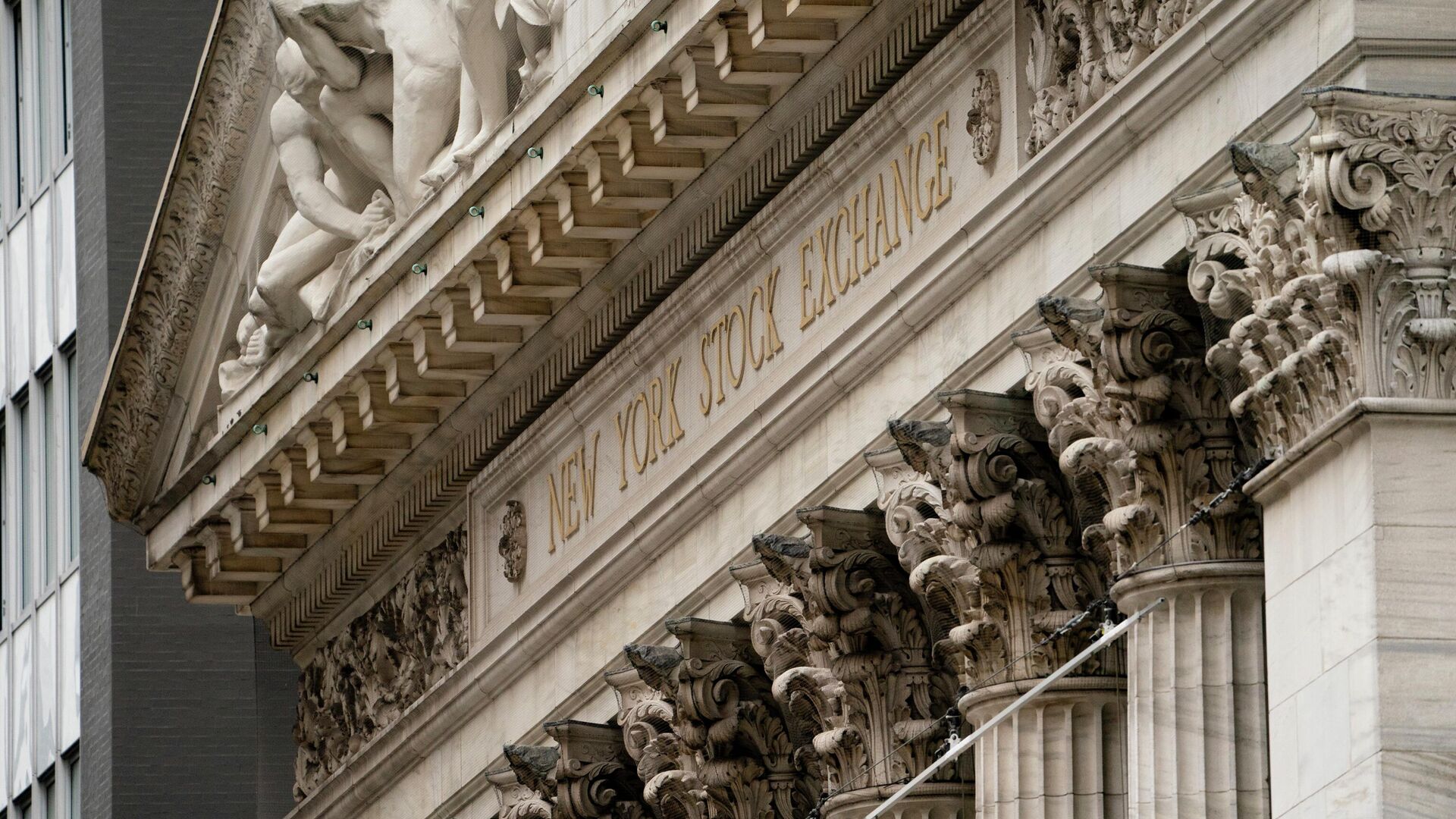https://sputnikglobe.com/20220509/wall-street-melts-further-on-interest-rate-hike-fear-tech-stocks-hit-2020-lows-1095383145.html
Wall Street Melts Further on Interest Rate Hike Fear, Tech Stocks Hit 2020 Lows
Wall Street Melts Further on Interest Rate Hike Fear, Tech Stocks Hit 2020 Lows
Sputnik International
NEW YORK (Sputnik) - The selloff on Wall Street showed no signs of slowing on Monday as US tech stocks hit their lowest levels since November 2020 on fear that... 09.05.2022, Sputnik International
2022-05-09T21:20+0000
2022-05-09T21:20+0000
2022-05-09T21:20+0000
wall street
inflation
us stocks
interest rate
us
https://cdn1.img.sputnikglobe.com/img/07e6/05/09/1095382707_0:160:3073:1888_1920x0_80_0_0_356385a6410d904dcc9226c56b700e5d.jpg
The Nasdaq Composite Index - one of the three major US stock indices which groups top technology names such as Amazon, Apple, Netflix and Google - closed down 4.3% at 11,623. Earlier, it fell to as low as 11,575, marking a bottom since November 4, 2020. Nasdaq is already down 6% for May, extending April’s 13% selloff. Year-to-date, the tech barometer has lost 26%.Nasdaq aside, the S&P 500 Index for the top 500 US stocks closed down 3.1%, for a May decline of also around 3% and a year-to-date slide of 16%.The broad-based Dow Jones Industrial Average Index finished down 2%, registering a May decline of around 2% too and year-to-date fall of 11%.The latest anemic showing on Wall Street came as the Federal Reserve officials debated on whether the next US rate hike should be 75 basis points, with some saying that would be excessive while others arguing it might be necessary to stop runaway inflation.Money markets traders have already priced in a 79% probability of a 75-bps hike at the Federal Reserve’s upcoming June 14-15 meeting - after last week’s 50-bps increase at its May meeting, which in itself was the largest in 20 years. The last time the Fed raised rates by 75 basis points was in 1994.After contracting 3.5% in 2020 from disruptions forced by the coronavirus pandemic measures, the US economy expanded by 5.7% in 2021, growing at its quickest pace since 1982.But inflation grew even faster. The Personal Consumption Expenditure Index, a US inflation indicator closely followed by the Federal Reserve, rose by 5.8% in the year to December and 6.6% in the 12 months to March. Like the economy in 2021, both inflation readings also indicated the fastest growth since the 1980s.The US Consumer Price Index (CPI), another key measure for inflation, meanwhile, rose 8.5% in the year to March. The April reading for the CPI is on Wednesday, with analysts betting on an 8.1% growth year-on-year, though the actual number could surprise.The Federal Reserve’s stated tolerance for inflation is a 2% per year.
Sputnik International
feedback@sputniknews.com
+74956456601
MIA „Rossiya Segodnya“
2022
Sputnik International
feedback@sputniknews.com
+74956456601
MIA „Rossiya Segodnya“
News
en_EN
Sputnik International
feedback@sputniknews.com
+74956456601
MIA „Rossiya Segodnya“
Sputnik International
feedback@sputniknews.com
+74956456601
MIA „Rossiya Segodnya“
wall street, inflation, us stocks, interest rate, us
wall street, inflation, us stocks, interest rate, us
Wall Street Melts Further on Interest Rate Hike Fear, Tech Stocks Hit 2020 Lows
NEW YORK (Sputnik) - The selloff on Wall Street showed no signs of slowing on Monday as US tech stocks hit their lowest levels since November 2020 on fear that the Federal Reserve might send the economy into recession by embarking on the highest interest rate hike in three decades.
The Nasdaq Composite Index - one of the three major US stock indices which groups top technology names such as Amazon, Apple, Netflix and Google - closed down 4.3% at 11,623. Earlier, it fell to as low as 11,575, marking a bottom since November 4, 2020. Nasdaq is already down 6% for May, extending April’s 13% selloff. Year-to-date, the tech barometer has lost 26%.
Nasdaq aside, the S&P 500 Index for the top 500 US stocks closed down 3.1%, for a May decline of also around 3% and a year-to-date slide of 16%.
The broad-based Dow Jones Industrial Average Index finished down 2%, registering a May decline of around 2% too and year-to-date fall of 11%.
The latest anemic showing on Wall Street came as the Federal Reserve officials debated on whether the next US rate hike should be 75 basis points, with some saying that would be excessive while others arguing it might be necessary to stop runaway inflation.
Money markets traders have already priced in a 79% probability of a 75-bps hike at the Federal Reserve’s upcoming June 14-15 meeting - after last week’s 50-bps increase at its May meeting, which in itself was the largest in 20 years. The last time the Fed raised rates by 75 basis points was in 1994.
"Wall Street remains uninspired to ‘buy the dip’ as inflation seems poised to remain stubbornly high, which will force the Fed to tighten policy to levels that will jeopardize the soft landing most traders were expecting," Ed Moya, analyst at online trading platform OANDA, said. "Too many investors are in risk-off mode and targeting a deep bear market for tech stocks. The problem for tech stocks is that a lot of companies will struggle with rising costs as they pay their employees with equity."
After contracting 3.5% in 2020 from disruptions forced by the coronavirus pandemic measures, the US economy expanded by 5.7% in 2021, growing at its quickest pace since 1982.
But inflation grew even faster. The Personal Consumption Expenditure Index, a US inflation indicator closely followed by the Federal Reserve, rose by 5.8% in the year to December and 6.6% in the 12 months to March. Like the economy in 2021, both inflation readings also indicated the fastest growth since the 1980s.
The US Consumer Price Index (CPI), another key measure for inflation, meanwhile, rose 8.5% in the year to March. The April reading for the CPI is on Wednesday, with analysts betting on an 8.1% growth year-on-year, though the actual number could surprise.
The Federal Reserve’s stated tolerance for inflation is a 2% per year.

